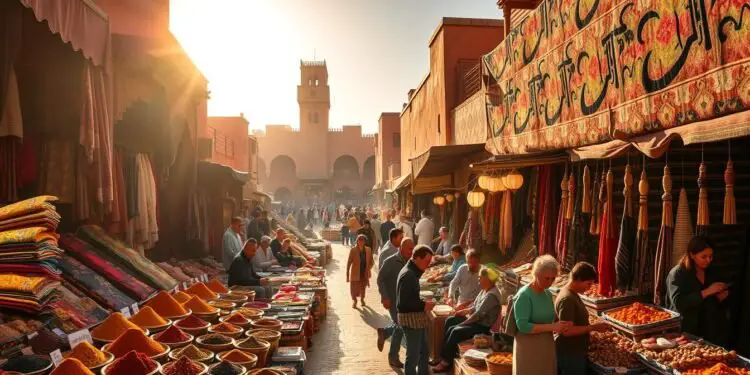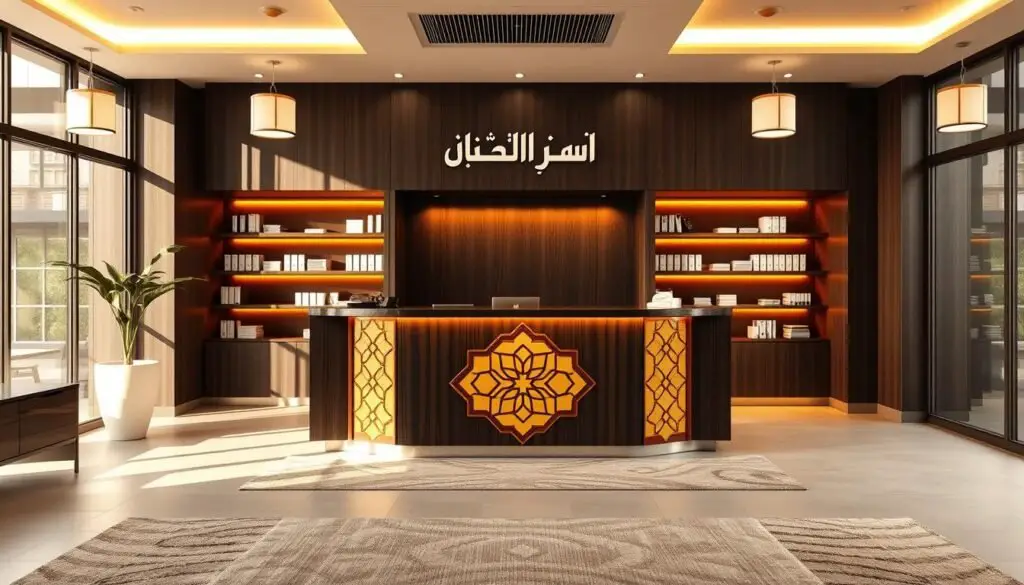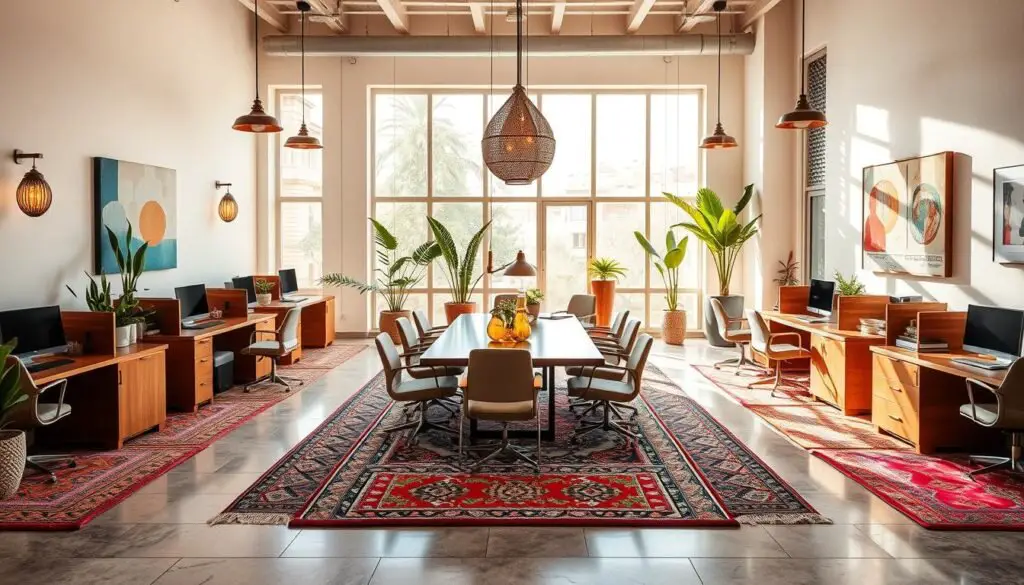With its strategic location bridging Europe, Africa, and the Middle East, Morocco offers a dynamic economy and a gateway to untapped markets. The country’s pro-business policies, skilled workforce, and growing industries make it an attractive destination for entrepreneurs and investors alike.
From renewable energy to tourism, key sectors are thriving, supported by government incentives like tax relief and streamlined registration. But success requires more than just opportunity—understanding local regulations, cultural nuances, and market dynamics is essential.
This guide explores the practical steps to navigate this vibrant economy, ensuring a smooth entry and long-term growth.
Key Takeaways
- Morocco serves as a strategic hub connecting three continents.
- Government incentives include tax exemptions and simplified registration.
- Key industries like renewable energy and tourism are rapidly expanding.
- Cultural and regulatory knowledge is critical for success.
- Professional guidance can streamline the setup process.
Why Morocco Is a Prime Destination for Business Expansion
Positioned at the crossroads of continents, Morocco presents unmatched opportunities for global ventures. Its free-trade agreements grant access to 1.3 billion consumers, while a young, multilingual workforce fuels innovation. With GDP doubling since 2004, the economy thrives on stability and strategic investments.
Strategic Geographic and Economic Advantages
Morocco bridges Europe, Africa, and the Middle East, supported by 16 international airports and Tanger-Med, Africa’s largest port. The high-speed rail network connects major cities, streamlining logistics. Government incentives like tax exemptions and technical training programs further enhance its appeal.
Key Industries Driving Growth
Tourism leads with 13 million annual visitors, fueled by luxury projects in Marrakech. The Noor Ouarzazate Solar Plant, powering 1 million+ homes, anchors the renewable energy sector. Automotive giants like Renault produce 400,000 vehicles yearly in Tangier.
Agribusiness dominates globally, supplying 77% of phosphate exports. Meanwhile, Casablanca’s tech hub attracts IBM and Microsoft, showcasing Morocco’s digital potential. For entrepreneurs, these sectors offer a proven path for a successful venture.
How to Launch in Morocco Market: Essential Preparations
Successful entry into Morocco’s market begins with a solid foundation of research and compliance. A detailed pre-launch checklist ensures you address legal, financial, and cultural requirements upfront. Competitive analysis and consumer behavior studies reveal gaps and opportunities.
Budgeting is critical. LLCs need a minimum capital of MAD 10,000, while sole proprietorships require less. Factor in licensing fees, office space, and local hires. A Spanish textile firm spent six months studying Fez’s artisan networks before launching—proof that patience pays.
Hiring local legal counsel simplifies navigating Morocco’s Commercial Code. Experts help with registration, contracts, and labor laws. Tools like the World Bank’s “Doing Business” reports benchmark progress and streamline planning.
Partnering with distributors or attending trade shows builds local networks. These steps minimize risks and align your business with Morocco’s dynamic economy.
Conducting Market Research for Success
Market research bridges the gap between global strategies and local success. Tailored insights reveal consumer behaviors, competitive gaps, and cultural preferences critical for decision-making. Start by analyzing demographics, spending patterns, and regional trends.
Identifying Target Audiences and Competitors
Morocco’s urban middle class drives demand for premium services and digital solutions. Surveys in Arabic and French yield higher response rates—73% prefer bilingual content. Mobile-friendly methods align with high internet penetration.
Competitor analysis uncovers pricing strategies and distribution networks. A Dubai retailer boosted sales by 40% after hiring local merchandisers. This highlights the value of cultural alignment.
Leveraging Local Insights
Adapt to cultural norms like shortened Ramadan hours and Friday-focused workweeks. Partnering with AmCham Morocco provides mentorship and simplifies regulations navigation.
The U.S. Commercial Service offers sector-specific data. Local staff add authenticity, ensuring campaigns resonate. Trust-based relationships often outweigh transactional approaches.
Choosing the Right Legal Structure for Your Business
Legal structures define liability, taxation, and operational flexibility—key factors for growth. Morocco offers options like LLCs and sole proprietorships, each with distinct advantages. Your choice impacts compliance, profit retention, and risk exposure.
Comparing LLCs and Sole Proprietorships
An LLC (SARL) requires MAD 10,000 minimum capital but limits personal liability. It suits businesses with multiple stakeholders or expansion plans. Annual audits and financial reports are mandatory.
Sole proprietorships need no minimum capital but expose owners to unlimited personal risk. Ideal for solo ventures with low regulatory overhead.
Tax and Liability Implications
Corporate tax rates are progressive: 10% for profits under MAD 300k, rising to 31% above MAD 1 million. VAT exemptions apply to agriculture and healthcare sectors.
Morocco’s 68 double-taxation treaties prevent dual payments for international firms. Late filings incur 10% monthly penalties, stressing timely compliance.
Step-by-Step Business Registration Process
Registering a business in Morocco involves clear steps to ensure compliance and efficiency. Entrepreneurs must prepare documents, reserve a company name, and coordinate with multiple agencies. The process typically takes 15 business days if all requirements are met.
Documentation and Name Reservation
Start by reserving a unique name through OMPIC, Morocco’s intellectual property office. Required documents include proof of identity for directors, articles of association, and a notarized capital deposit certificate.
A bank certificate confirming share capital (MAD 10,000 minimum for LLCs) is mandatory. Unsigned Arabic or French translations often cause delays—hire a notary to avoid setbacks.
Navigating Local Authorities
Submit paperwork to the Regional Investment Center (CRI) and Trade Register. The Tax Administration (DGI) issues a tax ID, while CNSS handles social security enrollment.
Partnering with a Société de Conseil speeds up bureaucratic hurdles. These firms specialize in liaising with agencies, reducing errors and wait times.
Opening a Moroccan Business Bank Account
A business bank account streamlines transactions and ensures compliance with local regulations. Morocco’s banking sector is robust, with institutions like Attijariwafa Bank (35% market share) and BMCE Bank of Africa offering tailored services for enterprises.
To start business banking, prepare company statutes, a tax ID, and shareholder passports. Some banks require proof of capital deposit, such as the MAD 10,000 minimum for LLCs.
CIH Bank’s “Net Business” platform provides online banking for SMEs, simplifying payments and payroll. For forex needs, Bank Al-Maghrib supports international transactions—an American e-commerce firm used its services to manage cross-border sales efficiently.
Registering with the Trade Register and obtaining a Tax Identification Number (TIN) are mandatory before account activation. Compare fees and digital features to choose the best bank for your operations.
Understanding Tax Obligations and Incentives
Navigating tax systems is crucial for maximizing profitability in any new market. Morocco offers a mix of fiscal responsibilities and incentives designed to attract foreign investment. Balancing these elements ensures compliance while capitalizing on growth opportunities.
Corporate and VAT Rates
Corporate tax rates range from 10% to 31%, depending on annual profits. Sectors like renewable energy enjoy reduced rates. The standard VAT is 20%, with lower tiers (7%–14%) for essentials like healthcare and education.
Free trade zones provide additional exemptions. For example, aerospace firms in Casablanca Finance City pay just 8.75% tax. Late filings incur steep penalties—plan ahead to avoid unnecessary costs.
Government Subsidies for Foreign Investors
Morocco’s Industrial Acceleration Plan covers up to 30% of factory setup costs. Export-focused businesses earn grants up to MAD 2 million if 70% of production is shipped abroad.
A German auto parts manufacturer secured a 12-hectare land grant in Kenitra. Such programs make Morocco a viable venture for global enterprises.
Securing Licenses and Permits
Securing the right permits is a critical step for any business entering Morocco. Each industry has unique requirements, from tourism to construction. Delays can cost time and revenue, so planning ahead is key.
Tourism ventures need a License d’Exploitation Touristique, issued by the Ministry of Tourism. Construction projects require urbanism certificates from local communes. Food services must pass health inspections by ONSSA, Morocco’s food safety authority.
Pharmaceutical permits take 8–12 weeks for approval. Financial firms register with Bank Al-Maghrib, while healthcare providers obtain Ministry of Health licenses. Environmental impact assessments are mandatory for high-risk projects.
Partnering with local legal experts simplifies navigating regulations. They ensure applications meet standards and avoid penalties. Proper licensing lays the foundation for long-term success.
Building a Local Team and Workspace
Assembling a skilled team and securing workspace are vital steps for scaling operations. Morocco’s labor laws mandate a 44-hour workweek, 30 days of annual leave, and employer-funded health insurance. Registering employees with the CNSS ensures social security coverage, a legal requirement for all businesses.
Recruitment platforms like ReKrute.ma specialize in engineering talent, while Avito.ma connects employers with blue-collar workers. For entrepreneurs, hiring bilingual staff improves communication with local partners and clients.
Office leasing in Casablanca Finance City averages MAD 250 per square meter monthly. Free zones like Tangier’s “MedZ” offer cost savings—a French call center reduced expenses by 40% through tax exemptions and streamlined logistics.
Partnering with local legal advisors ensures compliance with labor contracts and workspace regulations. This foundation supports sustainable growth in Morocco’s competitive market.
Marketing Strategies for the Moroccan Market
Effective marketing in Morocco blends digital innovation with cultural insights. With 84% internet penetration, platforms like Instagram and Facebook dominate. These channels are ideal for visual campaigns, especially during Ramadan, when engagement peaks.
Outdoor advertising remains powerful. Billboards on Casablanca’s A3 highway reach 500,000 daily commuters. Pairing these with digital ads creates a cohesive brand presence.
Localization is critical. Avoid mixing Darija and Modern Standard Arabic in translations. A Korean skincare brand boosted sales by 120% by adapting its Ramadan campaign to local preferences.
Urban areas like Rabat and Tangier drive 65% of consumption. Focus on services that cater to health-conscious youth and families. E-commerce transactions grew 34% in 2022, highlighting digital potential.
Partner with local agencies to refine messaging. Their expertise ensures campaigns resonate in this thriving market. Test strategies continuously—feedback loops help adapt to shifting trends.
Conclusion
Morocco’s thriving economy offers a clear path for global investors. From research to compliance, each step ensures a smooth entry into this dynamic business landscape.
With 6.3% projected GDP growth, the country rewards strategic planning. Leverage tools like AmCham Morocco’s mentorship or CRI’s Investor Roadmap for structured guidance.
Ready to begin? Download checklists and tap into local expertise today. Success here starts with preparation—and the right partners.
FAQ
What are the benefits of expanding a business in Morocco?
Morocco offers strategic geographic access to Europe and Africa, a growing economy, and government incentives for foreign investors. Key industries like manufacturing, tourism, and renewable energy provide strong opportunities.
How important is market research before entering the Moroccan market?
Conducting thorough market research is crucial. It helps identify local consumer behavior, competition, and regulatory requirements, ensuring a smoother entry and long-term success.
What legal structures are available for foreign entrepreneurs?
Options include limited liability companies (LLCs), sole proprietorships, and branches of foreign firms. Each has different tax rates, liability protections, and registration processes.
What documents are needed to register a business?
Required documents typically include a business plan, ID copies, proof of address, and a company name reservation. Additional permits may apply depending on the industry.
How long does business registration take?
The process usually takes 1-3 weeks, depending on the legal structure and completeness of submitted documents. Working with a local consultant can speed up approvals.
Can foreign investors open a local bank account?
Yes, most banks allow foreign-owned businesses to open accounts. Required documents include registration certificates, tax ID, and proof of business activity.
What are the corporate tax rates in Morocco?
Corporate tax rates vary between 10% and 31%, with incentives for certain sectors. VAT is typically 20%, but reduced rates apply to specific goods and services.
Are there government subsidies for foreign businesses?
Yes, Morocco offers tax exemptions, reduced tariffs, and financial incentives in sectors like renewable energy, automotive, and tourism to attract foreign investment.
What licenses are required to operate legally?
Required permits depend on the industry. Common licenses include trade registrations, health and safety approvals, and sector-specific authorizations.
How can businesses attract local talent?
Offering competitive salaries, training programs, and understanding cultural workplace expectations help in hiring and retaining skilled Moroccan employees.
What marketing strategies work best in Morocco?
Digital marketing, social media engagement, and partnerships with local influencers are effective. Traditional media and community events also play a key role.




